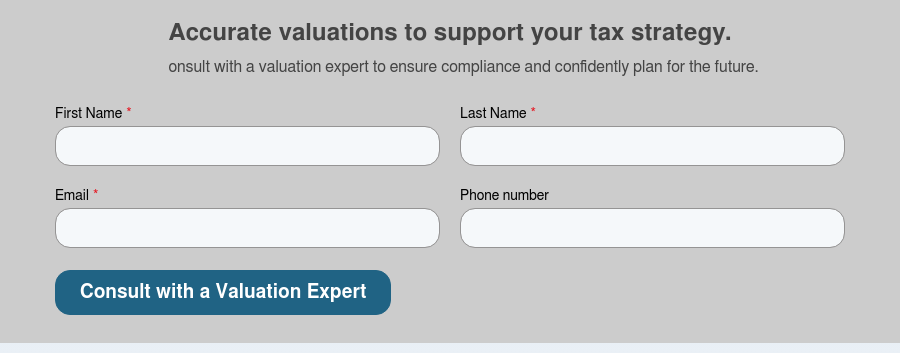Industry Trends
Largest Transactions Closed
- Target
- Buyer
- Value($mm)

Last updated:
Business owners have long navigated the uncertainty surrounding the sunset of key provisions in the Tax Cuts and Jobs Act (TCJA). Tax planning discussions often included the possibility that estate and gift tax exemptions would be significantly reduced.
On July 4, 2025, President Trump signed the One Big Beautiful Bill Act (OBBBA), a law that brings long-awaited clarity to the tax landscape. This legislation permanently increases the federal estate and gift tax lifetime exclusion amount, creating new and expanded opportunities for wealth transfer planning.
With the increased and permanent exemption, high-net-worth individuals can move forward with more confidence. For those who own privately held businesses and are nearing retirement or considering succession, business valuations for gift and estate tax purposes are more important than ever.
.jpg?width=300&height=225&name=OBBBA-The-Sunset-Era%20(1).jpg) The TCJA, enacted on December 22, 2017, temporarily set historically high federal gift and estate tax exemptions. For 2025, the exemption was approximately $13.99 million per individual and $27.98 million for married couples filing jointly. These provisions were scheduled to expire on December 31, 2025, which would have reduced the exemption by nearly half to an estimated $7 million per person, adjusted for inflation.
The TCJA, enacted on December 22, 2017, temporarily set historically high federal gift and estate tax exemptions. For 2025, the exemption was approximately $13.99 million per individual and $27.98 million for married couples filing jointly. These provisions were scheduled to expire on December 31, 2025, which would have reduced the exemption by nearly half to an estimated $7 million per person, adjusted for inflation.
This expiration timeline created a sense of urgency for many business owners. Baby boomers, in particular, who own the majority of closely held businesses and were preparing for retirement or planning wealth transfers, felt pressure to act before the window closed.
The OBBBA permanently increases the unified credit for gift and estate taxes and the Generation-Skipping Transfer Tax (GSTT) exemption. Beginning in 2026, the exclusion amount will be $15 million per individual and $30 million for married couples. Inflation adjustments will begin in 2027.
 This change introduces long-term certainty that significantly alters estate planning strategy. High-net-worth individuals who previously felt pressured to act quickly now have the ability to approach planning in a more measured and strategic way. With more time and flexibility, the focus can shift to preserving wealth and creating generational legacies.
This change introduces long-term certainty that significantly alters estate planning strategy. High-net-worth individuals who previously felt pressured to act quickly now have the ability to approach planning in a more measured and strategic way. With more time and flexibility, the focus can shift to preserving wealth and creating generational legacies.
Retaining assets until death may also become more appealing. Inherited assets receive a step-up in basis, potentially reducing capital gains taxes for heirs when those assets are sold. This is particularly important for appreciating business interests that have grown in value over decades.
Although the urgency to act has decreased, lifetime gifting remains a powerful strategy. The higher permanent exemption allows individuals to transfer even more wealth tax-free. This opens the door for more robust use of advanced estate planning vehicles, such as irrevocable trusts and family limited partnerships.
The OBBBA introduces long-term clarity to estate and gift tax planning. However, for owners of privately held businesses, particularly those preparing for succession or retirement, understanding the value of their business remains essential.
Business appraisers provide objective, defensible valuations that support wealth transfer strategies, inform succession plans, and satisfy IRS requirements.
Even with the higher exemption, ensuring every dollar of the exclusion is effectively used requires a precise understanding of asset values. A qualified business appraiser goes beyond formulas to assess fair market value, including the expert application of discounts for lack of control and lack of marketability. This expertise helps maximize the use of the new, higher exemptions by ensuring transferred business interests are valued accurately.
A comprehensive and objective valuation report is the cornerstone of audit defense. It helps substantiate the value of transferred interests in the event of an IRS review. This reduces the risk of disputes and penalties and provides peace of mind to both business owners and their advisors.
Without the pressure of a looming deadline, business owners can take a thoughtful approach to succession planning. Whether transitioning to family, exploring employee ownership, or preparing for an eventual sale, accurate valuation data supports key decisions about ownership, equity distribution, and long-term continuity.
For baby boomers, this moment provides the opportunity to shape a legacy on their terms, supported by data rather than driven by tax deadlines.
Even with the clarity brought by the OBBBA, gift and estate planning remains a complex area of tax law. Business valuation professionals work closely with legal and tax advisors to ensure valuation conclusions align with the broader financial strategy. This collaboration results in stronger, more cohesive plans for wealth preservation and transfer.
The “One Big Beautiful Bill” has provided certainty where there was once confusion. However, effective gift and estate planning still requires thoughtful strategy and expert execution.
PCE’s valuation team provides the technical support needed to develop sound strategies under the new exemption framework. Whether you are advising clients or planning your own transition, an accurate and defensible business valuation is the foundation for long-term success.

Sadikshya (Sadi) Karki, ASA
Sadi Karki is an Associate in PCE’s valuation practice, specializing in valuations for estate and gift tax, shareholder disputes, ESOPs, and other business needs. With deep expertise in financial modeling and quality control, she delivers precise, insightful valuations that support confident decision-making.
Investment Banking | ESOP
Orlando Office
407-621-2111 (direct)
djasmund@pcecompanies.com
Connect
407-621-2111 (direct)
407-621-2199 (fax)